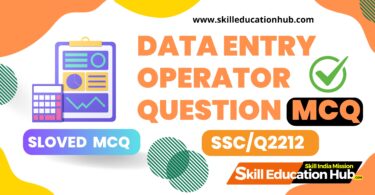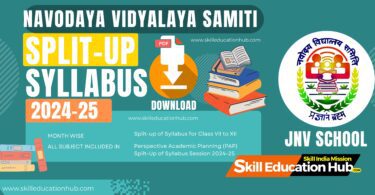Library and Information Science (LIS) professionals play a crucial role in various sectors, contributing to the efficient handling of information resources. Here are some prominent career opportunities in Library and Information Science offers a diverse range of opportunities for individuals interested in organizing, managing, and disseminating information.

- Librarian:
- Description: Librarians are responsible for managing library resources, assisting patrons in locating information, and curating collections. They work in public, academic, school, or special libraries.
- Skills Required: Organizational skills, knowledge of cataloging and classification systems, customer service, and proficiency with library management systems.
- Archivist:
- Description: Archivists preserve and manage historical documents, records, and other materials. They organize, catalog, and provide access to these resources for researchers, historians, and the public.
- Skills Required: Preservation techniques, knowledge of archival standards, attention to detail, and digital archiving skills.
- Information Officer/Manager:
- Description: Information Officers or Managers work in various organizations to manage information resources. They ensure efficient information flow, implement information policies, and oversee databases and knowledge management systems.
- Skills Required: Information management, strategic planning, database management, and communication skills.
- Digital Asset Manager:
- Description: In the digital age, managing digital assets such as images, videos, and documents is crucial. Digital Asset Managers organize and maintain digital collections for easy retrieval.
- Skills Required: Digital preservation, metadata management, familiarity with digital asset management systems, and knowledge of copyright issues.
- Data Curator:
- Description: Data curators focus on organizing and managing research data. They ensure data integrity, quality, and compliance with ethical and legal standards.
- Skills Required: Data management, metadata creation, understanding of research methodologies, and knowledge of data governance.
- Records Manager:
- Description: Records Managers are responsible for the systematic control of an organization’s records throughout their life cycle. They ensure proper storage, retrieval, and disposal of records.
- Skills Required: Records management, compliance with regulations, information governance, and familiarity with records management software.
- Research Analyst:
- Description: Research Analysts in LIS contribute to various fields by conducting literature reviews, gathering and analyzing data, and providing valuable insights.
- Skills Required: Research methodologies, critical thinking, data analysis, and effective communication.
- Knowledge Manager:
- Description: Knowledge Managers focus on capturing, organizing, and distributing organizational knowledge to enhance efficiency and decision-making.
- Skills Required: Knowledge management strategies, content creation, collaboration tools, and information architecture.
- Special Collections Librarian:
- Description: Special Collections Librarians manage rare books, manuscripts, and unique materials. They may work in academic or cultural institutions with specialized collections.
- Skills Required: Collection management, preservation techniques, and expertise in specific subject areas.
- Library Technology Specialist:
- Description: Library Technology Specialists focus on implementing and managing technology solutions in libraries, including automation systems, databases, and digital resources.
- Skills Required: IT skills, familiarity with library systems, and troubleshooting abilities.
These career opportunities highlight the versatility of Library and Information Science, offering professionals the chance to work in traditional library settings, archives, government agencies, corporations, and various other fields where information management is critical. Additionally, the increasing role of technology has opened up new avenues for LIS professionals in the digital realm.

The field of Library and Information Science offers a diverse range of career options for professionals with varying levels of expertise. Here’s an overview of some of the types of library science professionals:
- Library Attendant:
- Responsibilities include basic library maintenance, shelving books, and assisting patrons with routine tasks.
- Library Assistant:
- Supports librarians in tasks such as circulation, cataloging, and assisting patrons. May handle basic reference queries.
- Semi-Professional Assistant:
- Typically involved in more complex library tasks, including cataloging, managing databases, and assisting with information retrieval.
- Junior Librarian/Professional Assistant:
- Assumes greater responsibilities, such as managing specific library sections, conducting research, and providing more advanced reference services.
- Assistant Librarian:
- Involved in library management, collection development, and may assist in planning and implementing library programs.
- Deputy Librarian:
- Holds a higher administrative position, responsible for overseeing library operations, staff, and contributing to strategic planning.
- Librarian/Chief Librarian:
- Heads the library, responsible for overall management, strategic planning, and decision-making.
- Researcher/Scientists/Application Specialist:
- Engages in research activities, develops specialized databases, and may work on the application of information science in various fields.
- Consultant/Reference Librarian:
- Provides expert advice on information resources, conducts research, and assists patrons in finding relevant materials.
- Cataloguer/Technical Assistant/Records Manager:
- Specializes in cataloging and classifying library materials, managing technical aspects of information systems, and maintaining records.
- Director/Head Of Information Centre:
- Leads information centers, overseeing operations, staff, and ensuring effective information services.
- Senior Information Analyst:
- Analyzes and interprets information needs, contributes to information system design, and may be involved in data management.
- Junior Information Analyst:
- Assists in analyzing information, conducting research, and supporting information retrieval processes.
- Senior Library Information Assistant:
- Takes on supervisory roles, managing staff and contributing to the development of library programs and services.
- Law Librarian:
- Specializes in legal information, assisting legal professionals in research and maintaining legal collections.
- Indexer:
- Creates indexes for books, journals, or databases, making information more accessible to users.
- Information Architect:
- Designs information structures, ensuring effective organization and retrieval of information in digital environments.
- Archivist:
- Manages and preserves historical records and documents, ensuring their accessibility and proper storage.
These roles highlight the diverse career paths available within the field of Library and Information Science, catering to the varied needs of information management and dissemination across different sectors.







